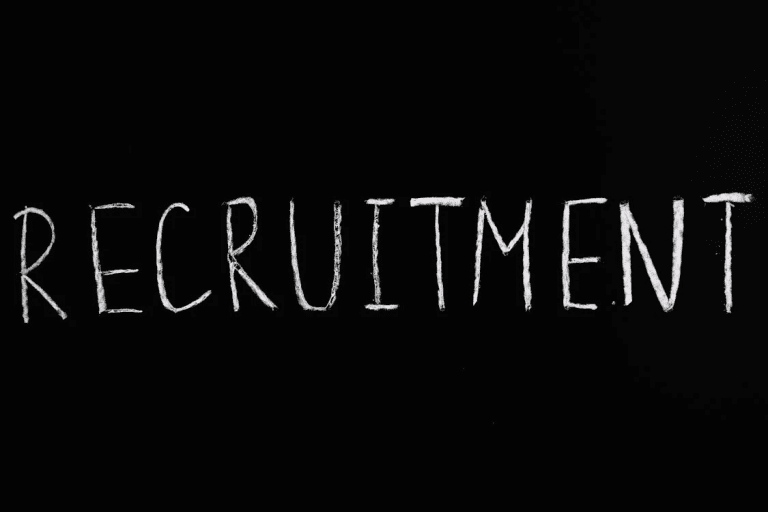The construction and built environment sector operates under unique ethical considerations that directly impact workplace safety, employee wellbeing, and organizational culture. For HR professionals working in construction companies, understanding these ethical principles is essential for creating compliant, safe, and productive work environments.
What Are Ethical Principles in Construction?
Ethical principles in construction refer to the moral standards and professional codes that guide decision-making throughout the building process. These principles govern everything from worker safety and environmental impact to quality standards and community relations. Unlike simple regulatory compliance, ethical principles require construction professionals to consider the broader implications of their work on society, the environment, and future generations.
The construction industry faces unique ethical challenges because decisions made during planning and building phases have long-lasting consequences. A structure built today may stand for decades or even centuries, affecting countless lives. This permanence demands a higher standard of ethical responsibility from everyone involved in the construction process.
Core Ethical Principles Applied to Construction
Public Safety and Welfare
The paramount ethical principle in construction is protecting public safety. This extends beyond the construction site to include the safety of building occupants and the general public who interact with completed structures. Construction professionals must prioritize safety over cost savings, schedule pressures, or profit margins.
From an HR perspective, this principle directly impacts workplace policies, safety training programs, and the organizational culture around risk management. Companies that genuinely embrace this principle empower workers to stop unsafe practices without fear of retaliation, regardless of project timelines or budget constraints.
Professional Competence and Integrity
Construction professionals have an ethical obligation to maintain competence in their field and to work only within their areas of expertise. This means staying current with building codes, construction techniques, safety standards, and emerging technologies. It also requires honest assessment of one’s capabilities and limitations.
HR departments play a crucial role in upholding this principle through rigorous credential verification during hiring, ongoing professional development programs, and performance management systems that reward skill development and honest communication about project capabilities.
Environmental Stewardship
Modern construction ethics requires consideration of environmental impact throughout a project’s lifecycle. This includes sustainable material selection, waste management, energy efficiency, water conservation, and minimizing ecological disruption. Construction decisions should consider not just immediate project needs but long-term environmental consequences.
For HR professionals, environmental stewardship translates into recruiting workers with sustainability expertise, providing environmental training, and fostering a workplace culture that values ecological responsibility alongside traditional construction objectives.
Fair Treatment and Labor Rights
Ethical construction practices demand fair treatment of all workers, including direct employees, subcontractors, and temporary labor. This encompasses fair wages, safe working conditions, reasonable working hours, and respect for labor rights. It also means ensuring equitable treatment regardless of employment status, nationality, or skill level.
HR departments must establish and enforce policies that prevent exploitation, ensure timely payment, provide adequate safety equipment, and create channels for workers to report concerns without facing retaliation. This principle is particularly important in construction, where the general contractor bears responsibility not only for their direct employees but also for the ethical treatment of all workers across subcontracted teams.
Transparency and Accountability
Construction projects involve multiple stakeholders including clients, investors, regulators, workers, and communities. Ethical practice requires honest communication with all parties about project capabilities, limitations, risks, and progress. This includes transparent reporting of safety incidents, quality issues, and environmental impacts.
From an HR standpoint, transparency means clear communication about workplace policies, honest performance feedback, and open discussion of safety concerns. It also involves maintaining accurate records and being forthcoming about workplace incidents or policy violations.
Quality and Durability
Construction professionals have an ethical obligation to deliver quality work that meets or exceeds specifications. This principle prohibits cutting corners, using substandard materials, or employing inadequate construction methods to increase profits or meet deadlines. Structures must be built to last and function as intended throughout their expected lifespan.
HR’s role in maintaining quality standards includes hiring skilled workers, providing adequate training, establishing quality control procedures, and creating incentive structures that reward quality workmanship rather than just speed or cost reduction.
Community Impact and Social Responsibility
Construction projects affect surrounding communities through noise, traffic, environmental changes, and economic impacts. Ethical construction requires considering and mitigating negative effects on nearby residents and businesses. It also means engaging with communities, respecting cultural heritage sites, and creating opportunities for local employment and economic development.
HR professionals contribute to this principle by developing community engagement programs, creating local hiring initiatives, establishing good neighbor policies for construction sites, and training workers in community relations and cultural sensitivity.
Why Construction Ethics Matter to HR Management
Regulatory Compliance and Legal Risk
Understanding construction ethics helps HR professionals navigate complex regulatory environments. Many ethical principles are codified in building codes, labor laws, environmental regulations, and occupational health standards. Failure to uphold these standards exposes companies to legal liability, regulatory penalties, and project shutdowns.
HR departments must stay current with relevant regulations, ensure worker training on compliance requirements, and maintain documentation that demonstrates ethical practices. This proactive approach minimizes legal risk and protects both the organization and its employees.
Workplace Safety and Employee Wellbeing
Construction remains one of the most hazardous industries globally. Ethical principles that prioritize safety directly impact employee wellbeing, injury rates, and workplace morale. Companies with strong ethical cultures around safety consistently demonstrate lower incident rates, reduced insurance costs, and improved employee retention.
HR’s safety responsibilities extend beyond compliance to creating a culture where workers feel empowered to prioritize safety over productivity pressures. This includes implementing robust safety training, establishing clear reporting procedures, and ensuring that safety concerns are taken seriously at all organizational levels.
Talent Attraction and Retention
Modern workers, particularly younger professionals, increasingly seek employers whose values align with their own. Construction companies known for ethical practices find it easier to attract and retain skilled workers. Conversely, companies with poor ethical reputations struggle with recruitment and face higher turnover rates.
HR departments can leverage ethical practices as key differentiators in competitive labor markets. Highlighting commitments to safety, environmental responsibility, and fair treatment strengthens employer branding and appeals to quality candidates who want meaningful work with reputable organizations.
Organizational Culture and Employee Engagement
Ethical principles shape workplace culture and directly impact employee engagement. When workers see their company consistently making ethical decisions—even at financial cost—they develop stronger organizational commitment and pride in their work. This translates to better performance, lower absenteeism, and more positive workplace relationships.
HR plays a central role in embedding ethical principles into organizational culture through onboarding programs, leadership development, recognition systems, and day-to-day policy enforcement. Creating alignment between stated values and actual practices is essential for building genuine ethical culture.
Implementing Ethical Principles: HR’s Strategic Role
Developing Comprehensive Ethics Policies
HR should lead the development of clear, comprehensive ethics policies specific to construction operations. These policies must address unique industry challenges such as subcontractor management, multi-site operations, diverse workforce considerations, and complex supply chains. Policies should be practical, enforceable, and regularly updated to reflect evolving standards and regulations.
Creating Ethical Decision-Making Frameworks
Construction workers frequently face ethical dilemmas where the right course of action isn’t immediately clear. HR can develop decision-making frameworks that help employees navigate these situations. This includes establishing clear escalation procedures, providing ethics training, and creating safe channels for seeking guidance on ethical questions.
Building Ethics Into Performance Management
Ethical behavior should be explicitly included in performance evaluations for all employees, from entry-level workers to senior executives. HR systems should track and reward ethical decision-making, integrity in reporting, and commitment to safety standards. This ensures that ethical behavior is valued alongside technical competence and productivity.
Establishing Reporting Mechanisms
Effective ethics programs require robust reporting mechanisms that allow workers to raise concerns without fear of retaliation. HR should implement multiple reporting channels including anonymous hotlines, designated ethics officers, and clear escalation procedures. Equally important is demonstrating that reports are taken seriously through thorough investigation and appropriate action.
Providing Ongoing Ethics Training
Ethics training shouldn’t be a one-time onboarding activity. HR should develop ongoing training programs that address emerging ethical challenges, reinforce core principles, and share case studies relevant to the organization’s work. Training should be practical, scenario-based, and tailored to different roles within the organization.
Measuring Ethical Performance in Construction
Key Performance Indicators
HR departments should establish metrics to measure ethical performance including safety incident rates, ethics hotline usage, training completion rates, turnover among ethical leadership roles, and supplier compliance scores. Regular monitoring of these indicators helps identify areas needing improvement and demonstrates organizational commitment to ethical practices.
Audit and Assessment Procedures
Regular ethics audits help ensure that stated principles align with actual practices. HR should coordinate periodic reviews of hiring practices, workplace safety procedures, subcontractor management, and community engagement initiatives. These audits should be conducted by independent parties when possible to ensure objectivity.
Benchmarking Against Industry Standards
Understanding how the organization’s ethical performance compares to industry standards provides valuable context. HR should participate in industry surveys, professional associations, and benchmarking studies to identify best practices and areas for improvement. This external perspective helps prevent complacency and drives continuous improvement.
Addressing Ethical Violations
When ethical violations occur, HR plays a critical role in investigation and resolution. Response procedures should be consistent, thorough, and fair. This includes protecting whistleblowers, conducting impartial investigations, taking appropriate disciplinary action, and implementing corrective measures to prevent recurrence.
The way organizations respond to ethical violations significantly impacts workplace culture. Swift, fair responses to violations demonstrate genuine commitment to ethical principles, while inconsistent or lenient responses undermine the entire ethics program and erode employee trust.
The Business Case for Construction Ethics
Ethical construction practices deliver measurable business benefits including reduced legal and regulatory risk, lower insurance premiums, improved project outcomes, enhanced reputation, better access to contracts, and stronger competitive positioning. For HR specifically, ethical practices result in lower recruitment costs, reduced turnover, improved employee engagement, and fewer workplace incidents.
Organizations that view ethics as integral to business success rather than as a compliance burden consistently outperform competitors on both ethical and financial metrics. HR professionals who can articulate this business case help secure leadership support and resources for ethics initiatives.
Conclusion
Understanding and implementing ethical principles in construction is fundamental to effective HR management in the industry, as these principles protect workers, serve communities, ensure quality outcomes, and create sustainable business success. As the construction industry continues to evolve with new technologies, materials, and methods, ethical principles provide the stable foundation for responsible decision-making. By embedding these principles into all aspects of HR practice—from recruitment and training to performance management and workplace culture —HR professionals ensure their organizations build not just structures, but lasting legacies of integrity and excellence that contribute to the broader built environment shaping society.
Guest writer


























